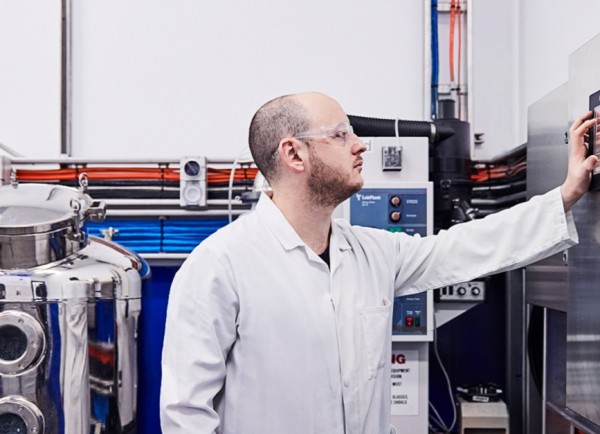Making it here: a sovereign success story
A critical platform technology to synthesise drug compounds at scale – and onshore production in Australia – has been successfully demonstrated in a collaboration between Melbourne company Boron Molecular, and innovation and technology development specialists, DMTC Limited, with support from Australia’s national science agency, CSIRO.
The science behind the story is captured in this new video produced by Miscible.
‘Flow chemistry’ describes the process of continuous chemical reactions in a pipe or tube, and offers a range of advantages over traditional batch chemistry processing.
Advantages include improved energy efficiency and waste reduction, improved safety in the manufacturing environment, a smaller infrastructure footprint and the opportunity to vary manufacturing volumes to meet demand.
In the event of significant supply chain pressures, flow chemistry technology could give Australia a competitive advantage and, critically, ensure the supply of at-risk active pharmaceutical ingredients.
Flow chemistry was initially pioneered in Australia by CSIRO, and the CSIRO team is also supporting the DMTC project.
The Head of the Health Security Systems Australia (HSSA) division at DMTC, Dr Felicia Pradera, said the work to date had successfully demonstrated the scalability of the flow chemistry process.

“In developing sovereign manufacturing capability, speed of response is critical but it’s far from the only measure,” Dr Pradera said.
“The team has worked diligently to ensure that technical rigour, quality control and cost-effectiveness have been front-of-mind considerations at every step.”
“Beyond the advances in technology, the down-stream benefits of DMTC’s collaborative model are also seen in the upskilling of the Australian workforce and the support provided to brilliant young researchers.”
Boron Molecular CEO Dr Oliver Hutt said the project was a great example of empowering Australian industry to rapidly solve big problems. “In addition to building the pilot plant, our work provides a really comprehensive blueprint for stakeholders to assess the feasibility of this technology,” Dr Hutt said.
“We’re continuing to work with DMTC and have identified some really compelling niche areas this technology could be applied, to benefit Australia.”
Posted by Harry Baxter on July 25th, 2024 Tagged: collaboration, DMTC, Health Security, industry, MCM, research